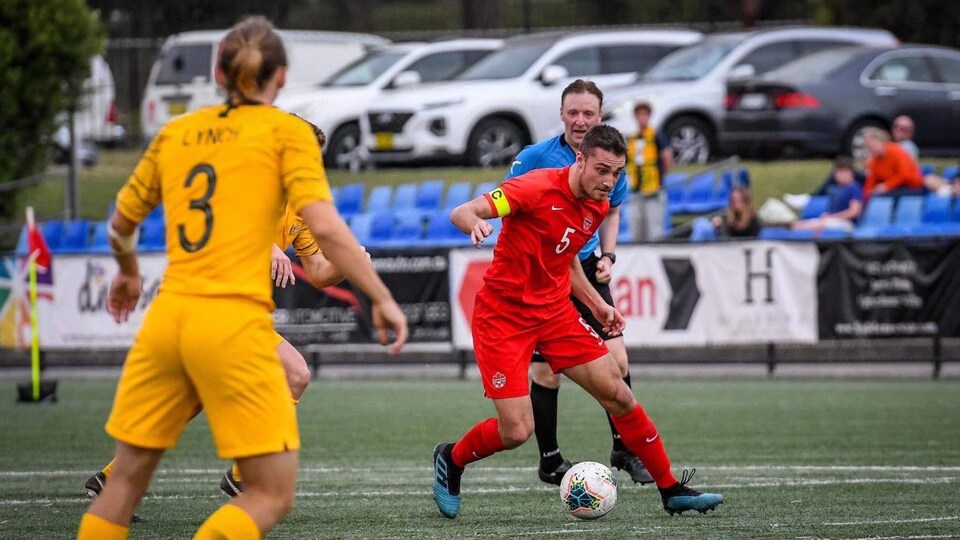In August, the women’s national soccer team won a gold medal at the Tokyo Olympics. Then, in March, the men’s team qualified for their first World Cup in 36 years. In the next few days, another Canadian soccer team will try to make its mark on the international stage. Thirteen players from across the country will compete in the International Football Federation World Cup for Athletes with Cerebral Palsy in Salou, Spain.
In the last edition of this competition in 2019, Canada settled for 12th place, but Samuel Charron was named the tournament’s most important player with six goals in six games.
Three years later, Canada will start its tournament on Tuesday against England before meeting the Netherlands on Thursday. The final group stage game will take place on Saturday against Venezuela.
Samuel Charron is still considered one of the best players in the world, but he wants to reach a new plateau with his teammates.
We often find it hard to believe that we could have made it into the top 8 in the past, he said. If we can get past this blocking and win two wins in our group, we can get into the quarter-finals.
All players on the court have a disability that affects their movement, reflexes and muscle strength to some degree. Some rules of the game have been changed. The field was smaller and the games were played seven-to-seven over two 30-minute stages.
The sport was part of the Paralympic Games from 1984 to 2016. The international federation wants it to return to the Paralympic fold in 2028.
Until then, Samuel Charron intended to promote his sport and say that people with disabilities like him could play soccer and be among the best. We don’t have much publicity to promote our sport. I want people in general to know that we have, that we are talking about when I retire as an athletehe mentioned.
The 24-year-old grew up in the Ottawa area. He started kicking the ball when he was 4 years old. Her parents always support her. Although Samuel’s right foot and arm were affected, they did not see him differently.
Because of Samuel’s disability, the only sport we could enroll him in at a young age was soccer, because we knew that in order to perform this activity he didn’t have to wear a lot of equipment so he could have fun in a group.said his mother Chantal Charron. Samuel did not want anyone to know that he was disabled, so his condition went unnoticed for several years.
Samuel was discovered by national parasoccer team coach Drew Ferguson when he was 12 years old. He was holding a training camp on the field of his club in Gloucester, a suburb of Ottawa, and he noticed it. For two days, he trained with members of the Canadian team.
Too young, at the age of 14 he officially represented his country. There his disability opened up for him. And because he is often the youngest in a man’s world, soccer has allowed him to mature very quickly. Since then he has played 51 games for Canada and scored 43 goals. He was named Soccer Canada’s Player of the Year in 2016 and 2019.
While in college, Samuel Charron played for the X-Men at St. Louis. Francis Xavier University of Nova Scotia on the Canadian Tour. In his senior year, he started 11 of the 12 games his team played and advanced to the Canadian Championships. This year, he will wear the Ottawa TFC uniform of the first division of the Ottawa-Carleton Soccer League. His dream is to play semi-professional someday. He may have had the opportunity to do so in Australia, but the pandemic put this project on ice.
Ever since he was 4 years old, he has always worked hard. Whether he continues to shine as a midfielder for Canada during the World Cup or as a defender with his team in Ottawa, he will achieve the goals he has set for himself.
If there are other young soccer players like him who have a disability, he can tell them to be proud of their disability, that it’s not a barrier, and not make it an excuse. .
Source: Radio-Canada
